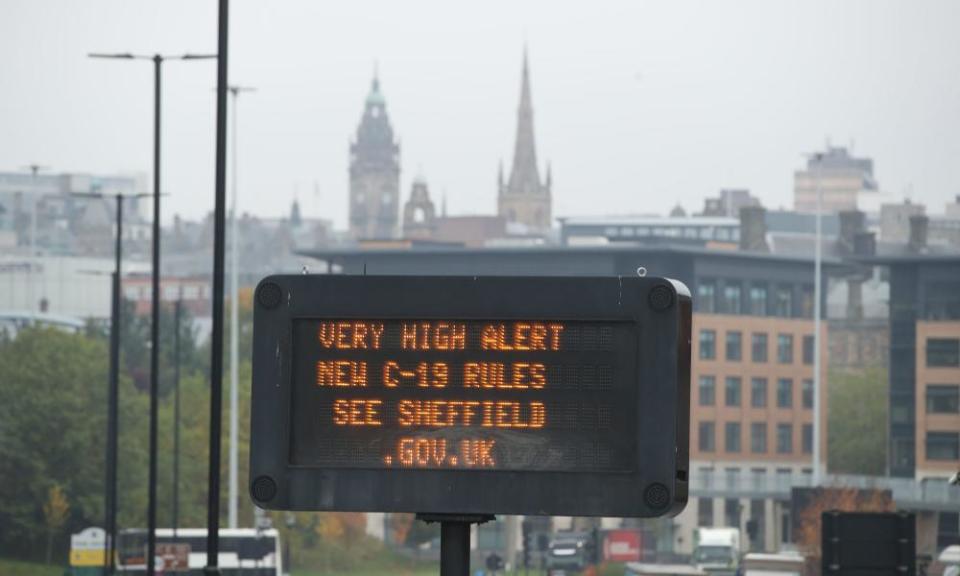Covid shielders like me need a mayor to fight our corner

As coronavirus cases rise, headlines are dominated by northern leaders being forced by central government to accept inadequate financial aid packages. This is a shameful dereliction of duty by the Tories and is rightly attracting ire, both from regional mayors and the press. And yet it is striking that a similar thing is being done to another group – shielders – but with even less attention. New guidance for shielding for people at high risk because of underlying health conditions was released by the government last week, but without even a small offer of financial support. The new guidance advises “vulnerable people” in high alert areas to stay at home as much as possible, but offers no support to help them cope with paying the bills or accessing food and medicine. Even in the highest alert areas, if shielders are unable to do their jobs at home, the guidance only says they “may” be eligible for some benefits.
What’s happening to people with underlying health conditions and communities in the Midlands and north are not two separate issues but clearly overlap. Boris Johnson’s second-wave strategy is consistent: restrict people’s livelihoods but offer little or no government funds to survive that. With state support schemes closed, shielders in locked-down Leicester are surviving on food brought by volunteers. Class status is also linked to disability: disabled people are more likely to be in poverty, poor housing and insecure jobs.
Many high-risk employees are terrified of being at work: teachers with low immunity back in packed classrooms and temp workers with asthma forced to get on a busy bus because they have no car. Others have been stuck in their homes for eight months with next to no recognition of what this is doing to their mental health or day to day lives. It is striking that when the psychological impact of lockdown is discussed, there is little mention of the mental health of shielders – the group that is more isolated than any other and in some cases, shut away all year.
None of this is about calling for the blanket reintroduction of lockdown, but recognising that inadequate support is putting people at risk. Giving clinically vulnerable people guidance to stay at home is little help if it doesn’t come with the practical, psychological and financial support to help them do so. It is not difficult to understand that if a virus means some people need to stay indoors indefinitely, practical questions will need answering. Can I access food? Will I lose my job? How can I safely have human contact?
Similarly, it was not hard for ministers to predict that existing inequalities experienced by disabled people would lead them to be more vulnerable to the pandemic’s fallout. That a quarter of disabled workers fear they’ll lose their job during the crisis is all the worse considering how much harder it is for disabled people to be hired. Meanwhile, disabled women are twice as likely to suffer domestic violence than women without disabilities but they haven’t even been mentioned as abuse rocketed during lockdown.
I can’t help but long for a mayor of high-risk people to fight our corner. The steps ministers should take are clear enough: extend the furlough scheme for people who are high risk and unable to work from home; ensure that workplace health and safety measures are enforced stringently; help people get deliveries of essential items, such as food and medicines; work to ensure the health and care services disabled people rely on don’t shut down as cases rise; provide better and more accessible communication of information, including for those without the internet, an easy read format for learning disabled people, and signers for deaf viewers.
Johnson’s failure to piece any of this together is a reflection of the limitations of Tory small state ideology in dealing with a pandemic, but also a sign of their ease at abandoning ignored communities. Just as the long-forgotten Midlands and the hnorth are being left to fend for themselves as the virus spreads, people dealing with chronic illness and disability are an easy sacrifice to make. There is not only a sense of the government leaving parts of the public to fend for themselves, but of reneging on a deal: people sacrificed seeing their family and risked their jobs, yet ministers have still not provided a functioning test-and-trace system or financial packages. High-risk communities are more than doing our part. It’s time the government did the same.
• Frances Ryan is a Guardian columnist

